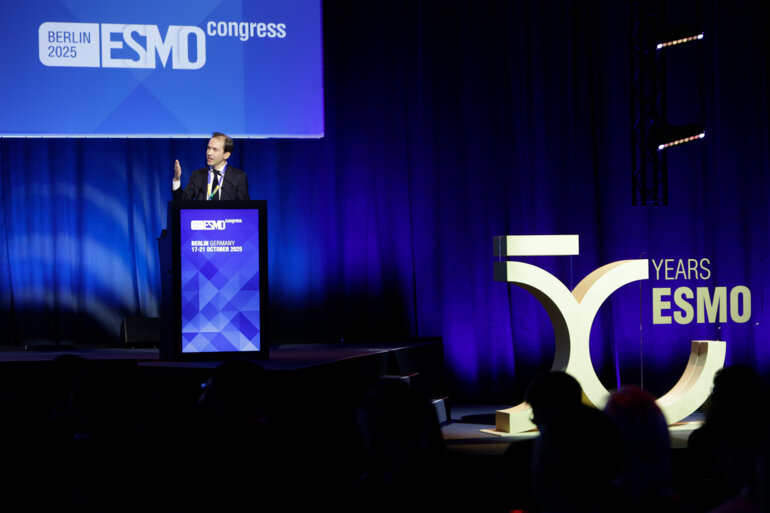Survival benefits of the radioligand therapy needs to be confirmed in further studies
In The Lancet Oncology, results from a multicentre retrospective study report that prostate-specific membrane antigen (PSMA)-targeted radioligand therapy (RLT) using Actinium-255 (255Ac) is active in controlling disease in pre-treated men with metastatic castration-resistant prostate cancer (mCRPC), with a manageable toxicity profile (Lancet Oncol. 2024 Feb;25(2):175-183).
In the study, a total of 488 men with mCRPC and PSMA-avidity in tumour lesions demonstrated on PET or single-photon emission computed tomography (SPECT) imaging, received 8 MBq of 225Ac-PSMA RLT administered intravenously every 8 weeks until disease remission, disease progression, death or patient withdrawal from treatment, at seven centres in Australia, India, Germany and South Africa. All patients had received previous lines of therapy including taxane-based chemotherapy, androgen- receptor-axis inhibitors, 177Lu-PSMA RLT and radium-223 dichloride. In the study, 225Ac-PSMA RLT was administered as a last-line therapy option in 91% of patients because they had exhausted or were ineligible for other treatments.
At a median follow-up of 9 months, the median overall survival (OS) was 15.5 months (95% CI 13.4–18.3) and median progression-free survival (PFS) was 7.9 months (95% CI 6.8–8.9). Levels of prostate-specific antigen (PSA) decreased in 73% of patients after receiving at least one cycle of 225Ac-PSMA RLT, and a PSA decline of 50% or more was reported in 57% of patients.
Overall, 225Ac-PSMA RLT showed a manageable toxicity profile, with xerostomia emerging as a common adverse advent after the first cycle of treatment (n=236) and grade 3 or higher anaemia was seen in 13%, leukopenia in 4%, and thrombo-cytopenia in 7% of patients.
PSMA is overexpressed by prostate cancer and represents a suitable target for imaging and therapy with radiopharmaceuticals. Following the positive results of the phase III VISION trial, 177Lu-PSMA-617 was included in an update of the ESMO Clinical Practice Guidelines for the treatment of metastatic relapsed prostate cancer which have been pre-treated with a novel androgen receptor pathway inhibitor and taxanes (Ann Oncol. 2023;34:557–563). At the ESMO Congress 2023, encouraging results from the PSMAfore trial were also presented.
225Ac emits several alpha particles in its decay scheme that are much more energetic than the beta particles emitted by 177Lu, thus suggesting a stronger effect for killing tumour cells, and may be a novel treatment option for patients progressing on prior therapies including 177Lu-PSMA-617. Prospective trials are now needed to validate the safety and survival benefits of 225Ac-PSMA RLT in patients with mCRPC.






